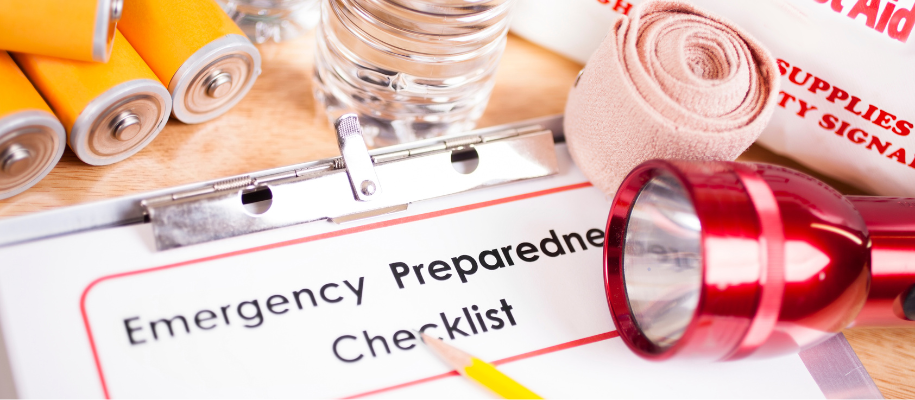In the wake of catastrophic events like Hurricane Katrina, Sandy, and Ivan, it's clear that natural disasters spare no one—not even college campuses. Whether it's a hurricane, tornado, earthquake, or nor'easter, densely populated areas and educational institutions are not immune to extreme elements. While most colleges and universities have crisis plans in place, your personal preparedness as a student is paramount. Here's how to ready yourself if a natural disaster hits your campus.
Before the storm hits
You don’t want to be one of those people battling the crowds at Walmart for a can of beans before a big weather event. Stay ahead of the curve by making some pre-storm preparations and stocking up on supplies when you’re shopping for dorm essentials. Keep non-perishable food items on hand like dried fruit, crackers, and canned goods. Also stock up on other items you might need like batteries, flashlights, and bottled water. Though some apartment buildings and dorms have backup generators, keep an extra blanket in case you lose power in the cold winter months. If you live in an apartment off campus, renter’s insurance may be a good investment to protect your valuables in case they get damaged.
Related: How Can I Better Prepare for On-Campus Crises at College?
While the storm is happening
When the wind is howling outside, you’ll likely be forced to stay inside your dorm or apartment, so prioritize a few important safety measures. Charge your cell phone and other electronics while you still have power, and if you live off campus and have food in your freezer, cook some of it ahead of time in case you lose it—this will give you something to eat and also help prevent food waste. Secure your living space by locking the doors and windows, and make sure none of your valuables are on the floor in case of possible flood damage. If you have a vehicle on campus, park it away from trees and in an elevated area to avoid flooding.
After the storm passes
Hopefully, you’re all safe and sound when the storm ends. Now it’s time to assess any damage to your living space and contact your insurance provider if necessary. Before you search for your car, make sure it’s safe to go outside and check local news outlets to see if any major roads are closed or flooded. If you’re still in the dark, use your charged phone to stay informed about class cancellations, road closures, and power outage updates. Check your state and school’s website to find post-emergency instructions, closings, relevant phone numbers, and other important info. Don't forget to check on your neighbors as well and reach out to your resident assistant for guidance if you're in a dorm.
Related: 5 Great Campus Resources Students Should Know About
Readiness is your strongest asset in moments of uncertainty. As a college student, you can navigate challenges posed by natural disasters and withstand any storm by taking personal proactive measures before, during, and after a crisis. Doing so will significantly enhance everyone’s safety and mitigate potential damage.
Explore our Student Life section for even more campus safety articles and advice, like 5 Smart Personal Safety Tips for High School and College Students.







